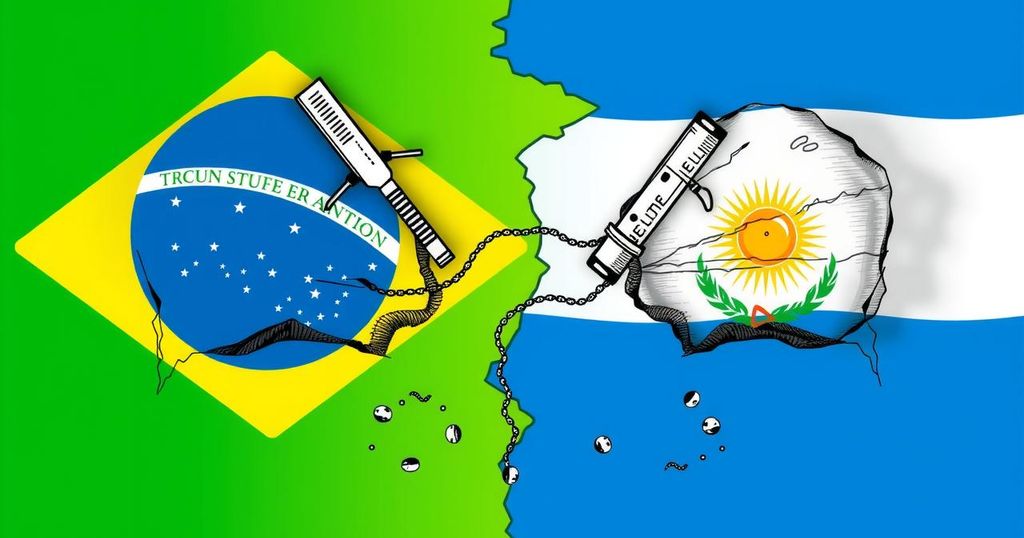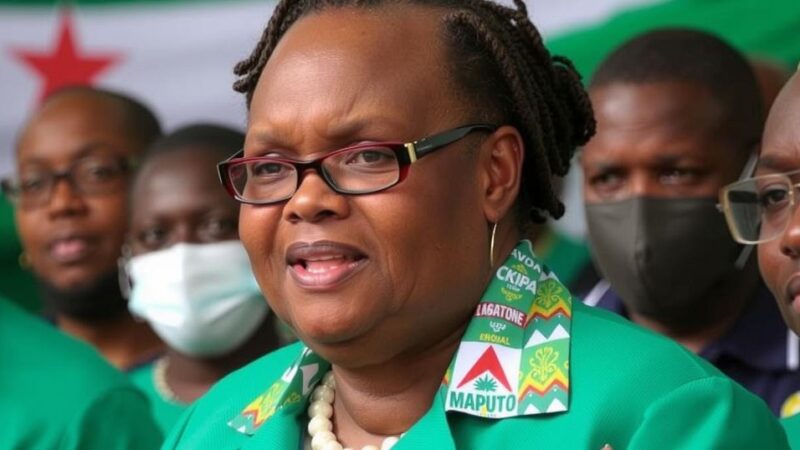Brazilian Climate and Environment Minister Marina Silva criticized Argentine President Javier Milei’s withdrawal from COP29, stating it undermines global climate efforts, but she believes it will not hinder ongoing negotiations for financial support to less developed countries. Silva emphasized the widespread impact of climate change, while Vice-President Geraldo Alckmin warned of economic repercussions for Argentina, reiterating the importance of science in addressing these issues.
On Thursday, Brazil’s Environment and Climate Change Minister, Marina Silva, criticized Argentine President Javier Milei’s decision to withdraw his delegation from the Conference of Parties 29 (COP29) in Baku, Azerbaijan. Silva articulated that this action contradicts global climate efforts, emphasizing that it undermines cooperation necessary for addressing climate change challenges. However, she expressed optimism that this decision would not hinder ongoing negotiations aimed at securing financial support for less developed nations’ adherence to international environmental commitments. Silva highlighted the pervasive damage caused by climate change, affecting agricultural sectors and industrial productions worldwide. She noted that nations that do not participate actively in climate agreements exacerbate these issues, which ultimately harm their own citizens’ livelihoods. While recognizing concerns regarding customs policies, she insisted that threats to families and businesses due to climate neglect would have consequences for those withdrawing from the Paris Agreement. Vice-President Geraldo Alckmin also condemned President Milei’s viewpoint, asserting that science should guide humanity towards progress, as evidenced by advancements in public health and medicine. He cautioned that Milei’s decision could have detrimental economic effects on Argentina, potentially lowering its GDP. Nonetheless, Alckmin maintained that state relations would remain intact despite this individual decision.
The context of this discussion centers on climate change and international cooperation. The Conference of Parties (COP) is a pivotal gathering for countries to negotiate environmental policies and commitments, particularly under the framework of the Paris Agreement. Brazil’s officials argue that a unified global effort is essential to combat the existential threats posed by climate change, as failure to engage in these negotiations can have dire impacts on both local and global scales. President Milei’s decision to withdraw from these discussions represents a significant departure from collective action, raising concerns among neighboring nations regarding the broader implications for climate agreements and finance for environmental adaptation.
In conclusion, the withdrawal of Argentina from COP29 reflects a divergence from cooperative global climate efforts, as articulated by Brazil’s Environment Minister Marina Silva and Vice-President Geraldo Alckmin. This decision raises concerns about the potential repercussions not only for Argentina’s economy but also for the collective progress towards meeting climate change challenges. The Brazilian officials remain hopeful that negotiations regarding climate finance and adaptation for less developed nations will continue undeterred by this withdrawal.
Original Source: en.mercopress.com







